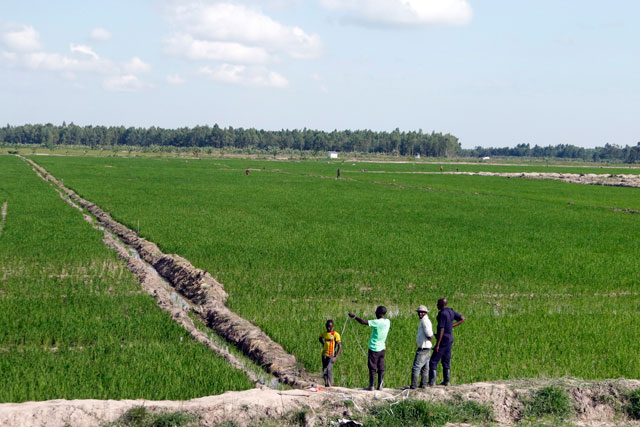
Kaliro, Uganda | THE INDEPENDENT | President Yoweri Museveni has urged residents of Kaliro District to embrace voluntary withdrawal from wetlands, emphasizing the use of dialogue rather than force to achieve conservation goals. While addressing locals on June 6, Museveni explained that wetlands once accounted for 20% of Uganda’s land area, while 80% remained dry and highly suitable for sustainable agriculture.
He noted that much of the dry land remains viable and should be prioritized for crop production, while wetlands should be preserved as natural water reservoirs. Museveni argued that preserving wetlands and utilizing them for irrigation would result in higher yields compared to clearing them for crops like sugarcane.
Citing the example of Dr. Muranga of the Tooke Initiative, Museveni said, “Because of consistent irrigation throughout the year, she harvests 53 tonnes of bananas per hectare, compared to only 5.3 tonnes by neighboring farmers in Bushenyi who rely on seasonal rainfall.”
He added that dryland farmers using wetland water for irrigation could earn ten times more than those cultivating wetlands directly. The President also referenced his Kawumu farm, where he earns UGX 80 million annually from fish ponds on one acre, compared to UGX 4 million earned by wetland rice farmers on the same area. He emphasized that his team would adopt scientific methods to sensitize communities on how to profit from waterlogged areas without damaging the environment.
To foster mindset change, Museveni announced plans to take wetland rice farmers on exposure visits to Limoto in Pallisa District, where wetlands have been sustainably repurposed for higher incomes. “For the wetlands, let us take them to Limoto. When they come back, we discuss,” Museveni said.
Bulamogi County MP Sanon Bwiire said that the government has started offering alternative enterprises such as livestock and fish farming to encroachers to encourage voluntary withdrawal from wetlands. However, he stressed that the success of these initiatives hinges on adequate training in enterprise selection to ensure beneficiaries can sustainably manage their new ventures.
Some beneficiaries shared concerns over the poor outcomes of these alternatives. Teopista Naisanga said she received two crossbreed cows in exchange for vacating her two-acre wetland plot. However, both animals died within two months due to unknown causes.
“I’ve had to return to rice farming in the wetland just to make ends meet for my family of eight,” she lamented. Arpohia Mbeiza said most residents lack the technical knowledge to manage livestock. “We’ve only attended two meetings with the LC1 chairpersons before they gave out animals. Without veterinary support, the animals are dying one after another,” she explained. Another resident, Monica Musekwa, highlighted the failure of a beekeeping project.
“We were given beehives, but without any skills in beekeeping, the project has gone to waste,” she said. Musekwa emphasized the need for grassroots-level training aimed at shifting generational mindsets built on wetland farming.
“Many of the trainings are held at sub-county headquarters and are based on complex documents. Farmers like us need simple economic calculations and practical demonstrations,” she said. Kaliro LCV Chairperson Elijah Kagoda said that grassroots farmers lack exposure to sustainable wetland practices and welcomed President Museveni’s proposal for benchmark visits.
“The President’s initiative could be the turning point we’ve been waiting for. For long, there has been a lack of political will. But his personal involvement gives us hope,” Kagoda said. He added that piecemeal interventions by government agencies and politicians have done little to end wetland encroachment but believes Museveni’s hands-on approach could inspire lasting change.
****
URN
 The Independent Uganda: You get the Truth we Pay the Price
The Independent Uganda: You get the Truth we Pay the Price





